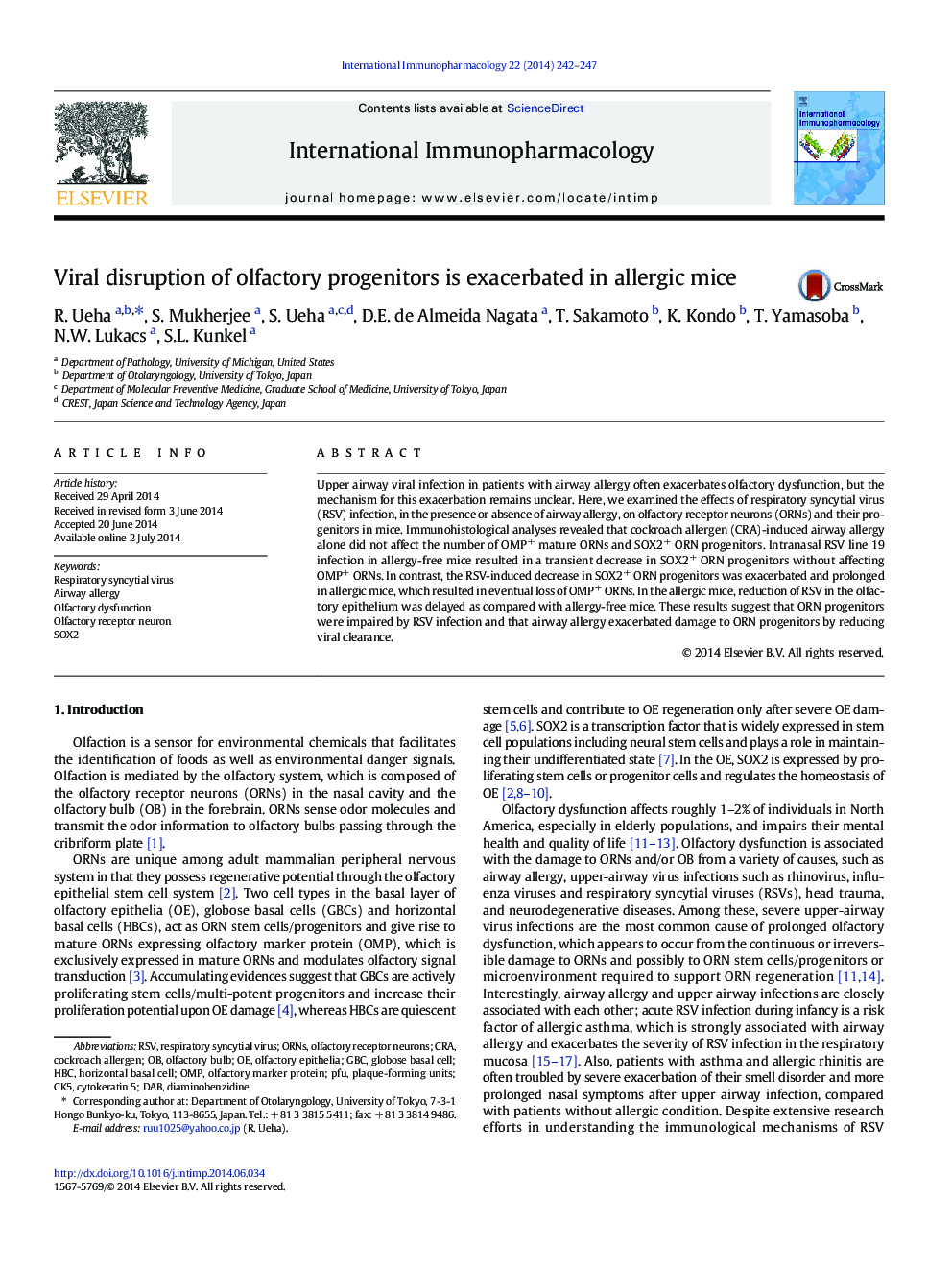| Article ID | Journal | Published Year | Pages | File Type |
|---|---|---|---|---|
| 2540638 | International Immunopharmacology | 2014 | 6 Pages |
•RSV infection transiently impairs SOX2+ ORN progenitors in nasal mucosa.•Airway allergy exacerbates RSV-induced impairments in ORN progenitors.•Airway allergy delays RSV clearance from nasal mucosa.
Upper airway viral infection in patients with airway allergy often exacerbates olfactory dysfunction, but the mechanism for this exacerbation remains unclear. Here, we examined the effects of respiratory syncytial virus (RSV) infection, in the presence or absence of airway allergy, on olfactory receptor neurons (ORNs) and their progenitors in mice. Immunohistological analyses revealed that cockroach allergen (CRA)-induced airway allergy alone did not affect the number of OMP+ mature ORNs and SOX2+ ORN progenitors. Intranasal RSV line 19 infection in allergy-free mice resulted in a transient decrease in SOX2+ ORN progenitors without affecting OMP+ ORNs. In contrast, the RSV-induced decrease in SOX2+ ORN progenitors was exacerbated and prolonged in allergic mice, which resulted in eventual loss of OMP+ ORNs. In the allergic mice, reduction of RSV in the olfactory epithelium was delayed as compared with allergy-free mice. These results suggest that ORN progenitors were impaired by RSV infection and that airway allergy exacerbated damage to ORN progenitors by reducing viral clearance.
